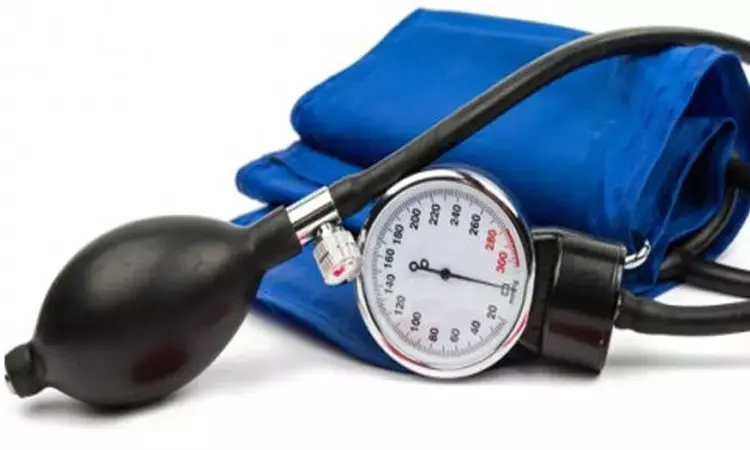- Home
- Medical news & Guidelines
- Anesthesiology
- Cardiology and CTVS
- Critical Care
- Dentistry
- Dermatology
- Diabetes and Endocrinology
- ENT
- Gastroenterology
- Medicine
- Nephrology
- Neurology
- Obstretics-Gynaecology
- Oncology
- Ophthalmology
- Orthopaedics
- Pediatrics-Neonatology
- Psychiatry
- Pulmonology
- Radiology
- Surgery
- Urology
- Laboratory Medicine
- Diet
- Nursing
- Paramedical
- Physiotherapy
- Health news
- Fact Check
- Bone Health Fact Check
- Brain Health Fact Check
- Cancer Related Fact Check
- Child Care Fact Check
- Dental and oral health fact check
- Diabetes and metabolic health fact check
- Diet and Nutrition Fact Check
- Eye and ENT Care Fact Check
- Fitness fact check
- Gut health fact check
- Heart health fact check
- Kidney health fact check
- Medical education fact check
- Men's health fact check
- Respiratory fact check
- Skin and hair care fact check
- Vaccine and Immunization fact check
- Women's health fact check
- AYUSH
- State News
- Andaman and Nicobar Islands
- Andhra Pradesh
- Arunachal Pradesh
- Assam
- Bihar
- Chandigarh
- Chattisgarh
- Dadra and Nagar Haveli
- Daman and Diu
- Delhi
- Goa
- Gujarat
- Haryana
- Himachal Pradesh
- Jammu & Kashmir
- Jharkhand
- Karnataka
- Kerala
- Ladakh
- Lakshadweep
- Madhya Pradesh
- Maharashtra
- Manipur
- Meghalaya
- Mizoram
- Nagaland
- Odisha
- Puducherry
- Punjab
- Rajasthan
- Sikkim
- Tamil Nadu
- Telangana
- Tripura
- Uttar Pradesh
- Uttrakhand
- West Bengal
- Medical Education
- Industry
BP medicines increase survival even in frailest elderly patients

Researchers have found in a large Italian study that taking prescription blood pressure medication helped even the frailest elderly patients live longer.They further found that while the improved survival benefit was found in all older people, the healthier older people survived longer than those with multiple medical conditions. The study has been published in the journal Hypertension.
Our findings definitely suggest that even in very frail people, antihypertensive treatment reduces the risk of death; however, the benefits may be smaller in this group," Giuseppe Mancia, M.D., lead study author said.
"We knew that high blood pressure medication was protective in general among older people, however, we focused on whether it is also protective in frail patients with many other medical conditions who are usually excluded from randomized trials," said Giuseppe Mancia.
Researchers reviewed data on almost 1.3 million people aged 65 and older (average age 76) in the Lombardy region of northern Italy who had 3 or more high blood pressure medication prescriptions in 2011-2012. Examining the public health care database, researchers calculated the percentage of time over the next seven years (or until death) that each person continued to receive the medications. Because almost all medications are free or low-cost and dispensed by the public health service, this corresponds roughly to people's adherence in using the medication in Italy.
To look separately at outcomes among older people with various medical conditions, researchers used a previously developed score that accounts for 34 different health factors and has a close relationship with mortality.
Researchers compared roughly 255,000 people who died during the 7-year follow-up with age-, gender-, and health-status-matched controls who survived and divided them into four groups of health status: good, medium, poor or very poor.
The probability of death over 7-years was 16% for people rated in good health at the beginning of the study. Mortality probability increased progressively to 64% for those rated in very poor health.
Compared with people with very low adherence to blood pressure medications (dispensed pills covered less than 25% of the time period), people with high adherence to blood pressure medications (more than 75% of the time period covered) were:
44% less likely to die if they started in good health; and
33% less likely to die if they started in very poor health.
A similar pattern was seen with cardiovascular deaths. The greatest survival benefit was among the people who started in good health, and the most modest survival benefit was in those who started in very poor health.
No matter what a person's initial health status, survival benefits were greatest in those who received blood pressure medication to cover more than 75% of the follow-up period, compared with those with intermediate (25-75%) or low levels (less than 25%) of coverage, highlighting the importance of consistent use of blood pressure medications.
"Do your best to encourage and support patients to take their medications, because adherence is crucial to getting the benefits. Medications do nothing if people don't take them," Mancia said.
Prescription medications given to elderly people living in nursing homes or assisted-living homes in Italy are not included in the national database, so the study's results may only apply to elderly people living in the community. In addition, all data for this analysis are from Italy, where hospitalizations and blood pressure medications are available for free or at low cost, thus, the study's findings may not be generalizable to countries with a different health care system.
For further reference log on to:
Additional Resources:
Available multimedia is on right column of release link - https://newsroom.heart.org/news/blood-pressure-medications-help-even-the-frailest-elderly-people-live-longer?preview=ecca1747eb4bc82d85c96b6c237dab09 in
Dr Kamal Kant Kohli-MBBS, DTCD- a chest specialist with more than 30 years of practice and a flair for writing clinical articles, Dr Kamal Kant Kohli joined Medical Dialogues as a Chief Editor of Medical News. Besides writing articles, as an editor, he proofreads and verifies all the medical content published on Medical Dialogues including those coming from journals, studies,medical conferences,guidelines etc. Email: drkohli@medicaldialogues.in. Contact no. 011-43720751


